Selecting a hair color after a certain age becomes an important part of creating a harmonious and fresh appearance. An incorrectly chosen shade can emphasize age-related changes, increase contrast, and make the face look tired. At Joy-pup, we’ll tell you which hair colors are not suitable for mature women.
Bright Red
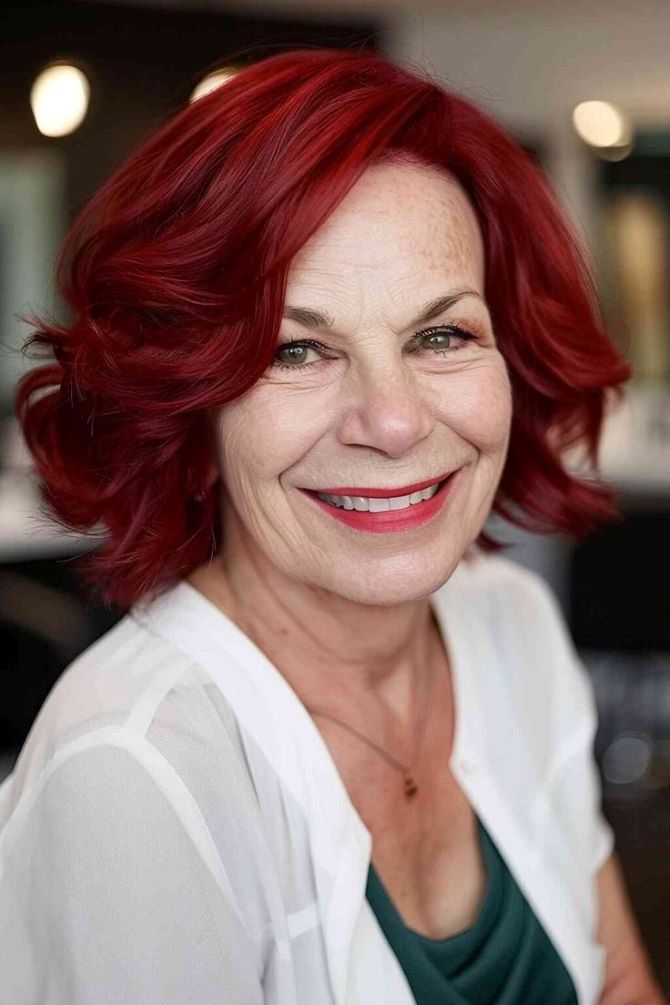
A pure red shade looks bold, but on mature skin it enhances redness, makes the face appear more tired, and draws attention to the skin tone. The bright pigment fades quickly, leaving an uneven color that highlights imperfections and makes the look less well-groomed.
Platinum
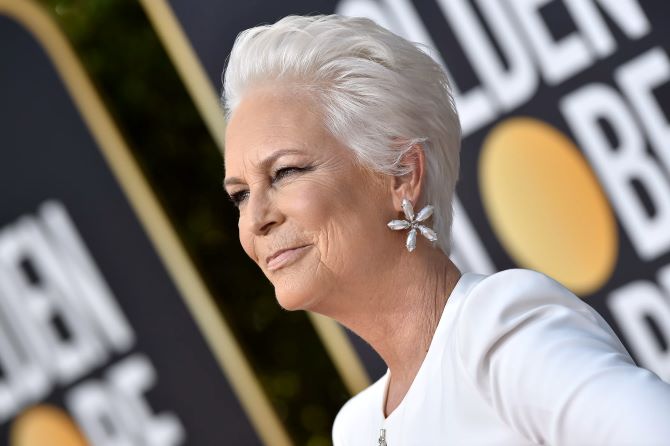
A very light platinum color requires perfect skin and hair condition. It emphasizes any unevenness in tone, makes the skin appear paler, and draws attention to age-related changes. Without a natural blush, platinum creates a sickly pallor effect and visually adds years.
Black
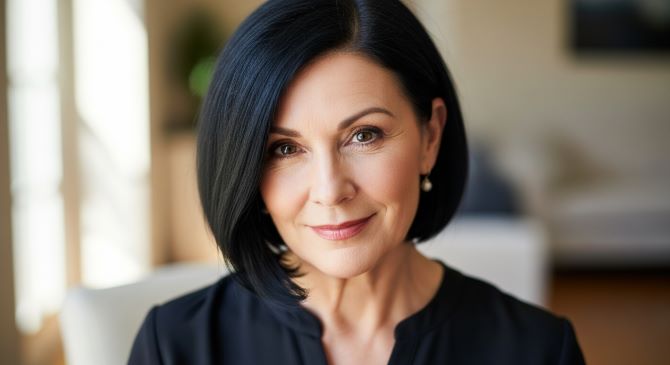
A deep black color creates too strong a contrast between hair and skin, especially when the skin becomes lighter and thinner. It highlights every line, accentuates dark circles, and makes facial features harsher. This shade visually weighs down the face and deprives it of softness, making the appearance look stricter and older.
Fuchsia
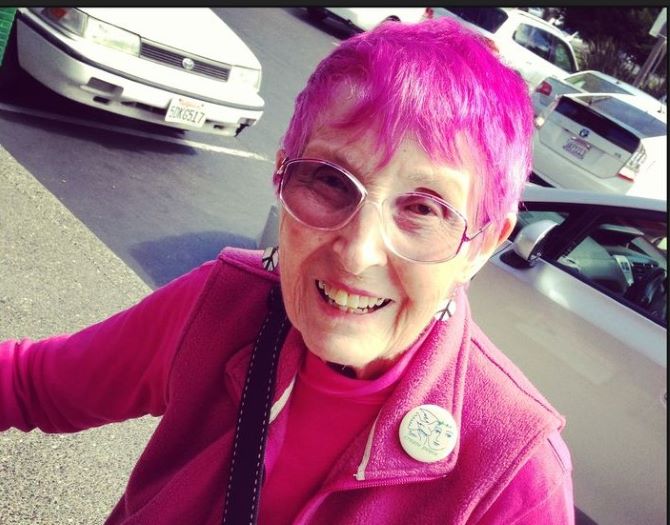
Cool-toned fuchsia accentuates bluish shadows, enhances uneven skin tones, and makes the skin appear thinner. This color requires very smooth, dense hair texture and flawless skin; otherwise, it looks too harsh and adds years instead of rejuvenating the appearance.
Copper Red
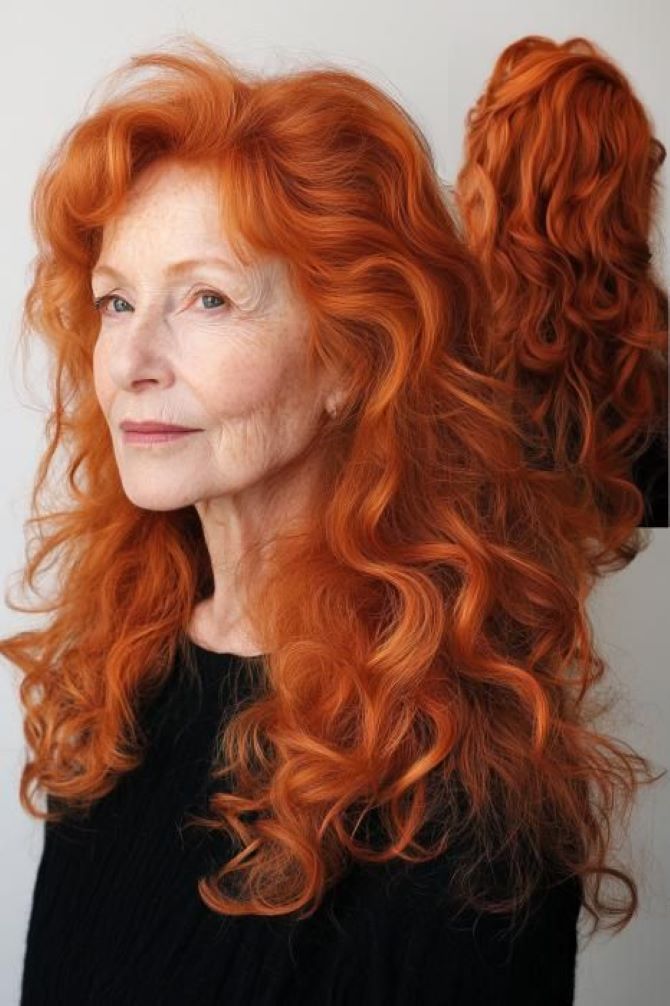
Rich copper shades make the skin tone appear warmer than it actually is, emphasizing redness and age-related changes. While this color can beautifully shimmer in the sunlight, in everyday life it often makes the skin look uneven and adds a visually tired effect.
Solid Dark Chestnut
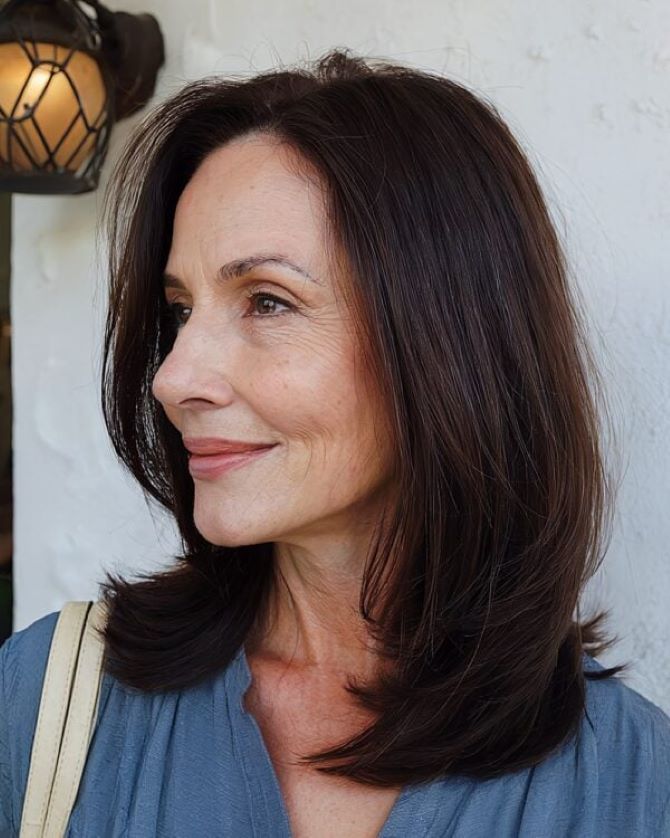
Although this shade is considered natural, its flat, single-tone version emphasizes fatigue and makes the features less soft. Without highlights and nuances, the hair appears heavier, and the face looks stricter and older.
Blue and Purple
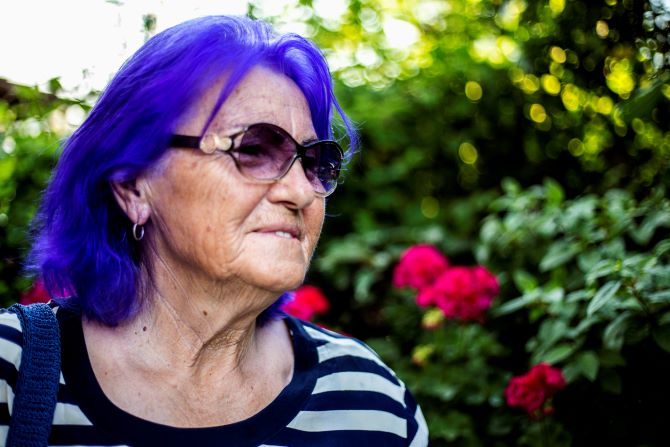
Unnaturally cool pigments rarely create a rejuvenating effect. A blue-purple base enhances gray and blue undertones in the face, emphasizes fine lines, and makes features sharper. Because of their strong contrast, these shades often appear too heavy.
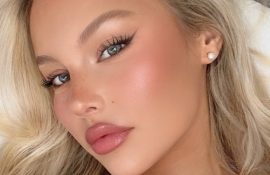



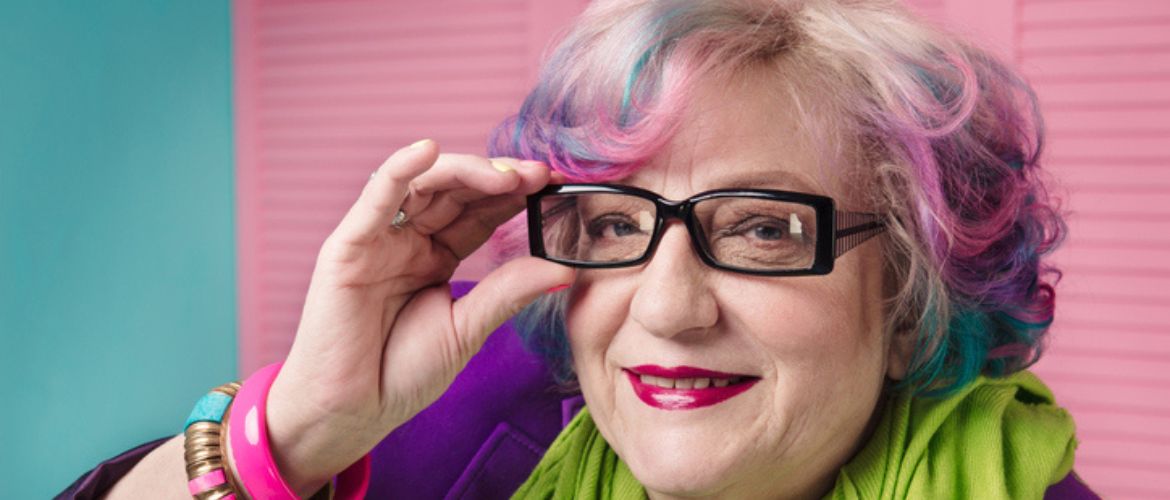
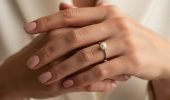

Only registered users can leave comments